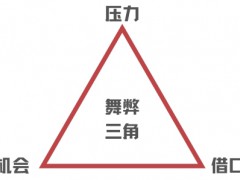???? 據(jù)彭博社2月8日報道,阿爾及利亞的能源出口正在急劇下降,或?qū)⒔o這個歐佩克成員國帶來更多的財政困難。
????2020年由新冠肺炎疫情引發(fā)的能源價格暴跌正威脅著一些產(chǎn)油國的未來,因為它們用來維持產(chǎn)量水平的資金已被削減,更不用說實現(xiàn)增產(chǎn)了。
????國際貨幣基金組織(IMF)數(shù)據(jù)顯示,每桶59美元的油價還不到阿爾及利亞今年平衡預(yù)算所需的一半。據(jù)IMF計算,該國要實現(xiàn)財政收支平衡,油價需達到每桶135美元,遠(yuǎn)高于阿拉伯地區(qū)其他產(chǎn)油國。
????彭博社船舶追蹤數(shù)據(jù)顯示,2020年,阿爾及利亞的原油和液化天然氣出口分別下降了30%左右,2021年這一趨勢仍將繼續(xù)。上月,出口銷量降至29萬桶,比2020年12月減少了36%,是自2017年以來的最低水平。
????2020年,由于新冠肺炎疫情導(dǎo)致飛機停飛、工廠關(guān)閉,阿爾及利亞和歐佩克的其他成員國都同意減產(chǎn)。后來,盡管大多數(shù)歐佩克成員國的石油產(chǎn)量超出了配額,但阿爾及利亞卻沒有觸及配額上限。1月,該國石油總產(chǎn)量略有上升,但仍處于2002年以來的最低水平。
????在天然氣方面,天然氣出口國論壇(the Gas Exporting Countries Forum)數(shù)據(jù)顯示,2019年,天然氣產(chǎn)量降至10年來的最低點。與此同時,隨著阿爾及利亞人口的增長,當(dāng)?shù)匕l(fā)電廠所需的燃料越來越多,留給出口的空間越來越小。
????總理阿卜杜拉齊茲·杰拉德(Abdelaziz Djerad)已下令削減開支以穩(wěn)定國家財政,但其政府對降低電力和糧食補貼仍持謹(jǐn)慎態(tài)度。能源研究公司Enverus董事Bill Farren-Price表示:“阿爾及利亞是歐佩克成員國中人均福利預(yù)算最高的國家之一。”
????國家能源公司Sonatrach表示,即便是削減開支,今年仍計劃將天然氣出口增加25%左右。該公司過去提高能源產(chǎn)量的努力因管理層頻繁變動而受阻。
????在外商引進方面,阿爾及利亞暗示將允許更多外國投資進入該國能源領(lǐng)域。
????朱小慶吉 摘譯自 彭博社
????原文如下:
????An Oil Country No More? Algeria’s Energy Exports Sink Rapidly
????Algeria’s energy exports are plunging, threatening more financial suffering for the OPEC member and a potential repeat of the mass demonstrations that toppled the president two years ago.
???The slump underscores how last year’s coronavirus-triggered collapse in energy prices is threatening the future of some producers by cutting off the money they need just to maintain, let alone increase, their levels of output.
????At around $59 a barrel, oil prices are less than half what Algeria needs to balance its budget this year, according to the International Monetary Fund. Its fiscal break even of $135 a barrel is higher than that of any other producer in the Arab world, the IMF calculates.
????The nation’s exports of crude and liquefied natural gas each declined around 30% in 2020, according to Bloomberg ship-tracking data. The trend’s continued this year. Oil sales abroad fell to just 290,000 barrels a day last month, 36% less than in December and the smallest figure since at least 2017.
????Algeria and other members of the Organization of Petroleum Exporting Countries agreed to cut production last year as the pandemic grounded planes and shut down factories. Yet while the majority of OPEC nations breached their quotas, Algeria mostly failed to reach its cap. Overall oil output rose slightly in January, but it’s still around the lowest since 2002.
????It’s a similar situation with gas, production of which fell in 2019 to at least a decade-low, according to the Gas Exporting Countries Forum. At the same time, Algeria is burning more of the fuel in local power plants as its population rises, leaving less room for exports.
????Prime Minister Abdelaziz Djerad has ordered spending cuts to stabilize the country’s finances. But his government is wary of lowering subsidies on power and food.
????“Algeria has one of the largest welfare budgets per capita of its OPEC peers,” said Bill Farren-Price, a director at energy research firm Enverus. Sustaining social spending “will be essential if mass protests are to be avoided.”
????State energy firm Sonatrach said it aims to boost gas exports by around 25% this year, even while slashing spending. The company’s past efforts to raise energy production have been hindered by frequent changes of management. It’s had four chief executive officers in the last two years and 12 since 2010.
????Outside Investors
????Algeria has hinted at allowing more foreign investment in the energy sector.







